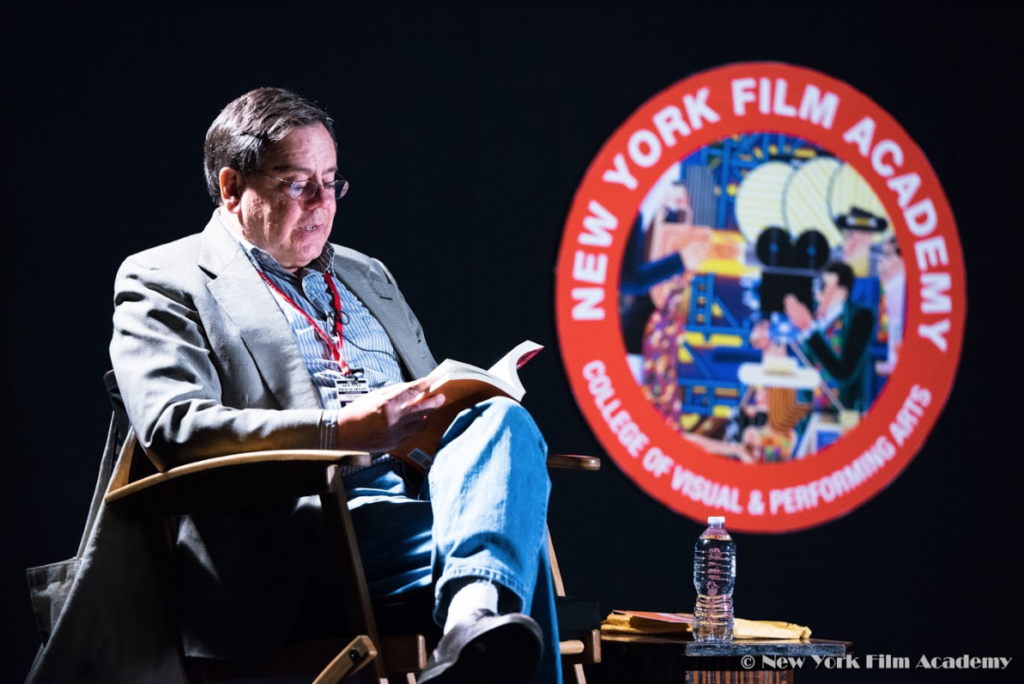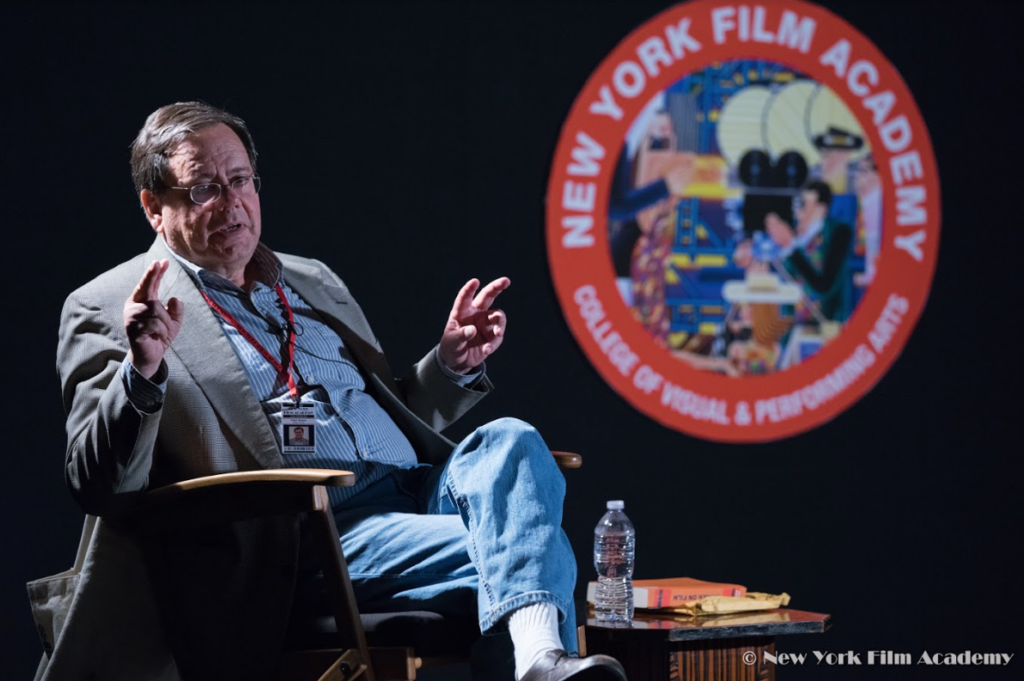Film Critic and historian Peter Rainer continues his guest lecture series with a thoughtful exploration of the film “Blue Sky” starring Jessica Lange and Tommy Lee Jones and directed by Tony Richardson (“A Taste of Honey” and “The Loneliness of the Long Distance Runner”). “Blue Sky” was shot between 1990 and 1991 but was not released until 1993. It was Richardson’s last film. In fact, he did not live long enough to see it released.
Lange won her second Oscar for her role as the Bipolar, hyper-sexualized wife of an army nuclear inspector. In her acceptance speech, Lange said, “This is such an honor, especially for a film that seemed to have no future.”

Peter Rainer, a NYFA Master Faculty member, is film critic for the Christian Science Monitor and NPR, author of “Rainer on Film,” and a finalist for the Pulitzer Prize in Criticism.
Rainer began the evening’s conversation with a reading of his initial review published in the Los Angeles Times from his book “Rainer on Film.” This review was sent to Oscar voters along with the VHS of the film for Ms. Lange’s nomination run. Rainer divulged that Lange herself said that if it hadn’t been for his essay she wouldn’t have won her second Oscar.
“Jessica Lange’s acting in ‘Blue Sky’ leaves you awestruck. It is a great performance. Because the film is just now being released, it is yet another foundling from the pre-bankrupt Orion picture era —its appearance is like a gift,” Rainer began. “It’s an especially welcome gift because Lange hasn’t been acting much in the movies lately. You have to wonder how it is that Lange could give such a performance. It’s even better than her Francis in ‘Francis’ or her Patsy Klein in the ‘Sweet Dreams’ and keeps away from the camera for so long. The lack of roles for women is no excuse. Lange is the kind of actress artists write parts for.”
From here the floor was open to students to discuss what they liked, what they didn’t understand, where they were moved, and how they might have addressed these performances. The most prevailing subject of conversation was the lead actress.
Lange has also played deranged southern belle, Blanche DuBois on Broadway. Her character in “Blue Sky,” Carly Marshall inhabits touches of Blanche but also Marilyn Monroe and Brigitte Bardot. During the open discussion, one student wondered aloud, “What is the relevance of Blanche. Why does she keep coming back over and over again in American cinema?”
Rainer gave a brief background on the character of Blanche and then said, “I think there are certain archetypes that repeat and the southern belle is one of them. The poles are Scarlett O’Hara in ‘Gone With the Wind’ and Blanche from ‘A Street Car Named Desire.’ It relates to the fragility and the strength of women in the context of a very male dominated society. Putting it in a southern context exaggerates that paradigm. In the South, you are expected to be prim and ladylike and sip Mint Julep, if you are a white woman.”

Speaking to the enduring legacy of the role, Rainer continued, “Also, the role is just that damn good. Tennessee Williams wrote one of the greatest roles of all time. It’s natural for dramatist and actors to try to play that out and try to recapture the magic. In the case of ‘Blue Sky,’ she’s not just DuBois she’s very much trying to capture the stars of that time — Elizabeth Taylor and Marilyn Monroe. The very first shot of the film is her leafing through star magazines.”
Another student chimed in that they didn’t think a film with a woman over 40 — acting sexy and leading a character driven film — could hope for funding in today’s film world.
“It’s kind of depressing to think about the number of great films that couldn’t get made today,” Rainer said. “This film got made because Jessica Lange at that time was big box office. Orion was one of the few film companies at this time willing to take risks. A film like ‘Blue Sky’ would do much better on television than film nowadays.”
The New York Film Academy would like to thank Peter Rainer for his continued support and informative lecture series. If you’d like to read more of Rainer’s reviews pick up his book “Rainer on Film” or his page on Rotten Tomatoes.